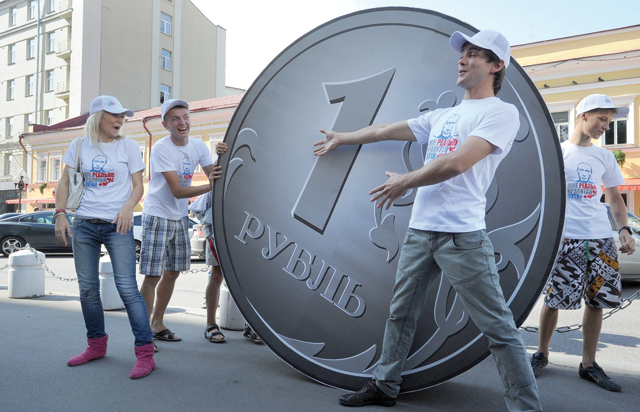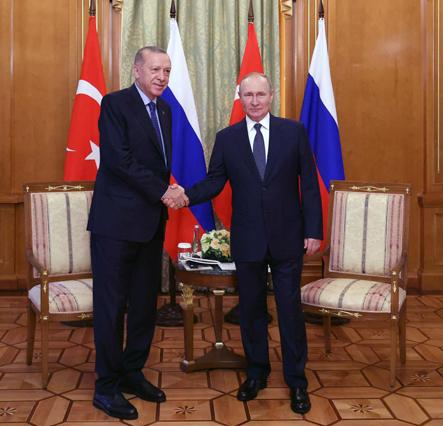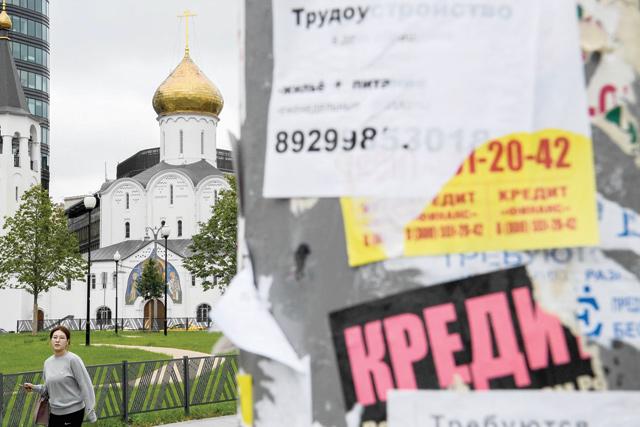You are here
Russian ruble plunges past 100 against dollar for first time since March 2022
By AFP - Aug 14,2023 - Last updated at Aug 14,2023

Members of a social network group 'I Really Like Putin' perform in front of a two-meter Russian ruble coin on a street in Moscow on August 18, 2011, during their action in support of Russia's currency (AFP photo)
MOSCOW — The Russian ruble slid past 100 against the dollar Monday, its lowest level since March 23, 2022 — weeks after Moscow unleashed full-scale hostilities in Ukraine.
The ruble has shed around 30 per cent of its value against the dollar since the beginning of the year, as the country imports more and exports less.
Data from the Moscow Exchange showed the ruble trading at 101.01 to the dollar at 11:33am (0833 GMT), while against the euro it tumbled to a near 17-month low of 110.73.
The ruble could sink further to 115-120 per dollar, Alor Broker analyst Alexei Antonov warned in a note published by financial firms on Monday.
"For the decline in the ruble to end," Antonov said, "we need to wait for a reduction in imports or decisive steps by the monetary authorities."
Russia's central bank already hiked its key interest rate to a greater-than-expected 8.5 percent in July, and last week set aside its budget rule in a bid to stabilise the currency.
The decline in the ruble has prompted fears ordinary Russians' standard of living could take a hit, as inflation creeps up.
Kremlin aide Maxim Oreshkin blamed what he called "loose monetary policy" in an opinion piece published by the state-run TASS news agency Monday.
He said the central bank had all the "necessary tools" to address the situation and predicted the ruble exchange rate would return to normal in the near future.
Related Articles
TEHRAN — Key Damascus supporter Tehran urged Ankara on Wednesday to quickly wrap up its week-old military intervention in Syria, saying it w
ISTANBUL — President Recep Tayyip Erdogan has confirmed that Turkey will start paying for some of its Russian natural gas imports in rubles.
MOSCOW — New machines popping up in Russian shopping centres seem innocuous enough — users insert their passport and receive a small loan in














